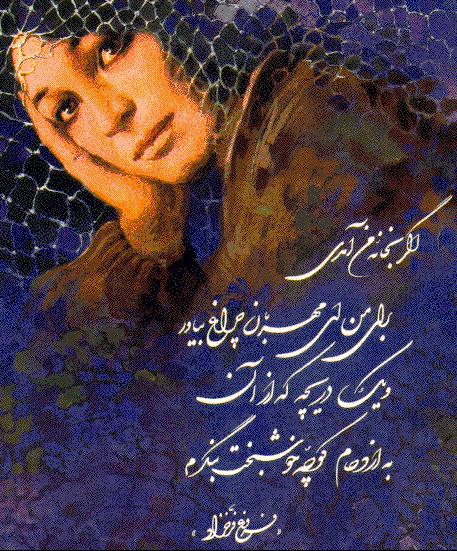It has been 49 years since a large group of Iranian literary and artistic figures, dressed in all black, gathered at Tehran’s Zahiroddoleh cemetery to bury 32-year-old poet Forough Farrokhzad.
Farrokhzad was killed in a traffic accident. For many Iranians alive at the time, the memory is still painful even today. She is still talked about, especially in artistic circles, seen as a vital female poet who took remarkable steps for women and for literature. Her poems are still regularly reviewed and analyzed. Her books continue to be reprinted, and documentaries are still made about her and her work. People still share memories of her.
The short life of Forough Farrokhzad had a great impact on the country’s poetic heritage, and she is still in the vanguard of modern Persian poetry. She was only 17 when her first poetry collection was published; two more had been published by the time she was 23.
Farrokhzad was born in 1935 in Amirieh, one of the oldest neighborhoods in Tehran. She was the third of seven children. Her father was an army colonel and her mother a homemaker. She was only 16 when she married Parviz Shapur, a well-known humorist who worked with the highly successful satire magazine Towfighi. He had been a neighbor and a relative of the poet’s mother. They had one son, Kamiar, but their marriage did not last: they were divorced after two years, in 1954. Their correspondence, which began before their marriage and continued after their separation, was published under the title My Heart’s First Love Palpitations.
In 1956, Farrokhzad published her second volume of poetry, The Wall, which she dedicated to her ex-husband.
In 1958, she travelled to Europe and spent nine months touring the continent. After returning to Iran, she found a job with Golestan Film Studio, owned by Ebrahim Golestan, the avant garde Iranian writer and filmmaker. Farrokhzad was first hired as a secretary but little by little, she learned to edit films. She wrote plays, translated plays and appeared on stage in a play directed by Pari Saberi.
In 1963, she directed The House Is Black, a short documentary about a leper colony in Tabriz, the provincial capital of East Azarbaijan. The film received complimentary reviews in various international festivals. The Oberhausen International Short Film Festival in Germany awarded it the title “best documentary.”
But for Farrokhzad, The House Is Black was more than a film or a prize. After working on the project, she adopted a boy named Hossein Mansouri, who lived with his parents in the leper colony and appeared in scenes in the documentary. After her death, he emigrated first to London and then to Germany. He studied sociology, but his short time with Forough Farrokhzad led to his own interest in poetry. Today, Mansouri is a poet and a translator of poetry.
In 1963, UNESCO produced a 30-minute film movie about the poet. Italian movie director Bernardo Bertolucci traveled to Iran to interview her, and later produced a short film about the her life and work.
Forough Farrokhzad’s poems have been translated into many languages including English, French, German, Italian, Russian, Uzbek and Turkish.



